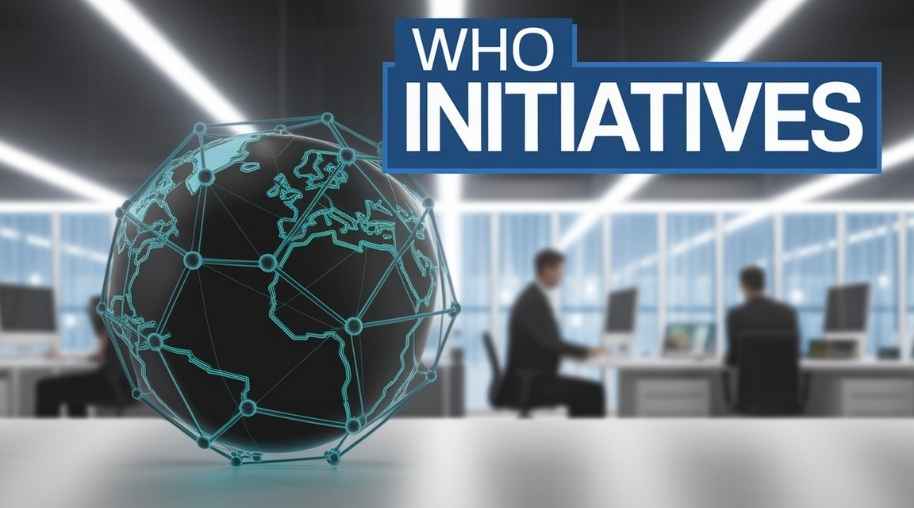WHO Full Form-World Health Organization
by Shashi Gaherwar
0 2242
World Health Organization: Championing Global Health
The World Health Organization (WHO), a specialized agency of the United Nations (UN), is dedicated to international public health. Established in 1948, WHO shapes global health policies, coordinates responses to health emergencies, and promotes disease prevention, collaborating with 194 member states, governments, and organizations to ensure health equity worldwide.

This article explores WHO’s mission, initiatives, achievements, and challenges in maintaining global health security.
History and Formation of WHO
Founded on April 7, 1948, the WHO was created to address global health concerns and promote well-being, a date now celebrated as World Health Day. It emerged to combat infectious diseases, improve healthcare systems, and set international health standards.
Objectives and Mission of WHO
WHO’s mission is to ensure the highest possible level of health for all. Its key objectives include:
- Combating Infectious Diseases: Tackling outbreaks like COVID-19, Ebola, and Malaria.
- Universal Health Coverage: Ensuring access to quality healthcare for all.
- Promoting Mental Health: Raising awareness about mental health disorders and treatments.
- Reducing Health Inequalities: Bridging healthcare gaps between developed and developing nations.
- Improving Maternal and Child Health: Reducing infant and maternal mortality rates.
- Strengthening Health Systems: Supporting national healthcare policies and infrastructure.
- Emergency Preparedness: Coordinating responses to pandemics and health crises.
Key WHO Programs and Initiatives
WHO leads several initiatives to address global health challenges:
- Global Polio Eradication Initiative (GPEI): Launched in 1988, it has reduced polio cases by 99%.
- COVAX Program: Ensures equitable access to COVID-19 vaccines for low- and middle-income countries.
- TB and Malaria Control: Promotes vaccination, drug distribution, and awareness to combat tuberculosis and malaria.
- International Health Regulations (IHR): A binding framework for managing health emergencies.
- Framework Convention on Tobacco Control (FCTC): The first global treaty to reduce tobacco consumption.
- Mental Health Action Plan 2013-2030: Integrates mental health into primary healthcare systems.
WHO’s Response to Major Health Crises
WHO has been pivotal in addressing global health emergencies:
- COVID-19 Pandemic: Declared a Public Health Emergency in 2020, WHO issued guidelines and launched COVAX for vaccine distribution.
- Ebola Outbreaks: Led responses in West Africa (2014-2016) and Congo (2018-2020), coordinating medical support and vaccines.
- HIV/AIDS Control: Collaborates with UNAIDS to reduce transmission and expand antiretroviral therapy, aiming to end the epidemic by 2030.
WHO’s Structure and Governance
WHO operates through a structured governance system:
- World Health Assembly (WHA): The decision-making body with representatives from member states.
- Executive Board: Implements WHA decisions and provides strategic direction.
- Director-General: Manages WHO’s global operations.
- Regional Offices: Six offices implement health policies locally: Africa (AFRO), Americas (PAHO), Southeast Asia (SEARO), Europe (EURO), Eastern Mediterranean (EMRO), and Western Pacific (WPRO).
Challenges Faced by WHO
WHO faces significant challenges in its mission:
- Funding Constraints: Reliance on voluntary contributions limits responses to health crises.
- Political Influence: Criticisms of bias and delays, notably during COVID-19, have sparked controversy.
- Vaccine Inequality: Equitable vaccine distribution to low-income countries remains difficult.
- Emerging Diseases: New threats like antimicrobial resistance and climate-related health issues pose ongoing challenges.
WHO’s Future Goals and Vision
WHO’s strategic goals for the future include:
- Universal Health Coverage: Achieving UHC for all by 2030.
- Pandemic Preparedness: Strengthening global systems to prevent outbreaks.
- Reducing Non-Communicable Diseases: Addressing diabetes, heart disease, and cancer.
- Climate-Related Health: Tackling issues like air pollution and heat-related illnesses.
The World Health Organization (WHO) is a cornerstone of global health governance, driving disease prevention, emergency responses, and policy advocacy. Despite challenges like funding shortages and political pressures, WHO remains committed to ensuring health for all. By fostering international cooperation and addressing emerging threats, WHO paves the way for a healthier, more equitable future.
Further Learning Resources
If you’re passionate about building a successful blogging website, check out this helpful guide at Coding Tag – How to Start a Successful Blog. It offers practical steps and expert tips to kickstart your blogging journey!
For dedicated UPSC exam preparation, we highly recommend visiting www.iasmania.com. It offers well-structured resources, current affairs, and subject-wise notes tailored specifically for aspirants. Start your journey today!

Share:








Comments
Waiting for your comments